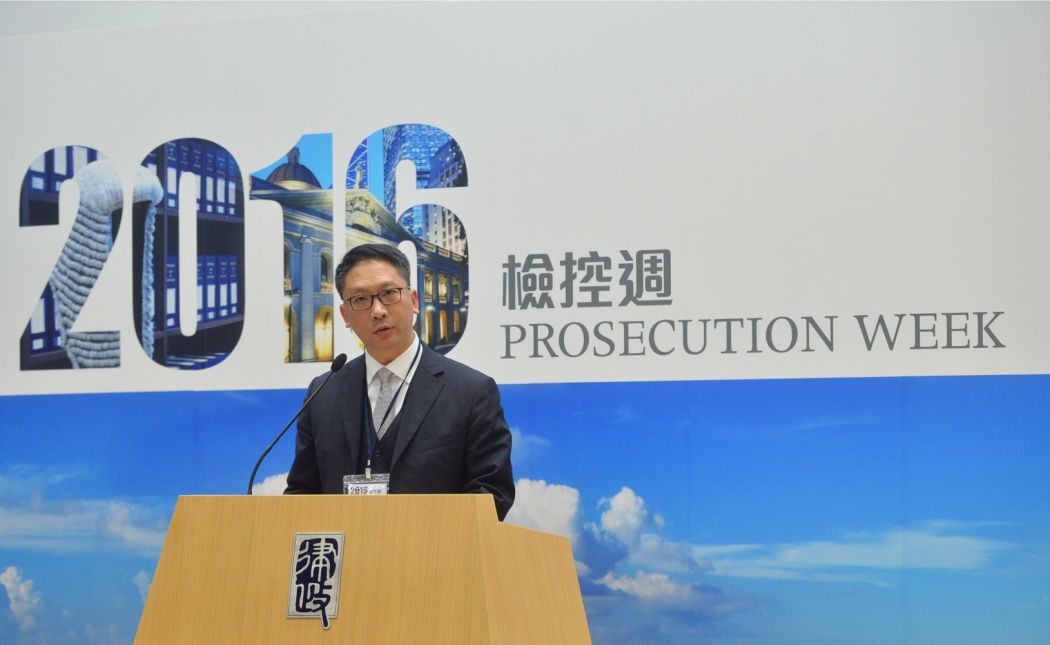At last, we have a statement from the Secretary for Justice on the election manipulation machinery. Rimsky Yuen, for it is he, announced last week that the decision to ban a candidate who had signed the requested new declaration had “a legal basis.”
A legal basis? Whisky Tango Foxtrot! There was a time (and if Mr. Yuen browses the files he will find a speech from Michael Thomas, a predecessor, on this very topic) when the Rule of Law was believed to require that any official exercising a power purporting to be legal should identify the law on which he was depending.
Mr. Yuen is the senior government law officer. If he can’t explain the “legal basis” on which some candidates fill in the form and are disqualified, while other candidates refuse and are not disqualified, then who can? We are left to wonder what law Mr. Yuen and the returning officers acting on his advice might have in mind.

Is it the Laws of Cricket, under which the umpire’s decision is final even if it is obviously wrong? Is it the Law of the Jungle, which says that nobody argues with an elephant? Or is it Doctorow’s law, which states (I am not making this up, unbelievers can click on the link) that “anytime someone puts a lock on something you own, against your wishes, and doesn’t give you the key, they’re not doing it for your benefit.”
This sort of thing will not fly in a Judicial Review hearing, so I suppose Mr. Yuen’s crew will have to eventually come up with some relevant extracts from the Basic Law and the Laws of Hong Kong. The absence of any indication what those extracts might be suggests the rather worrying possibility that they haven’t actually been identified yet.
Indeed, a nasty suspicious person might entertain the theory that Mr. Yuen’s people expect to lose. Their highest ambition is to prolong the proceedings until the new LegCo is already up and running, and then persuade the judge that it would not be in the public interest to repeat the election, even if some candidates were unlawfully excluded from it.
Still they will have to come up with something, and no doubt they will. I fear this is an example of what a historian of the German legal profession’s relations with the Nazis called the “terrible plasticity of legal reasoning.” If they work hard enough lawyers can justify surprising things, and this sometimes leads them astray, particularly if they are working for a government which is very keen to do something and just wishes to be told that the law allows it.
Recent examples of opinions now regretted in retrospect include the lawyers who advised George W. Bush that torture would be legal if called “enhanced interrogation,” and the Attorney General who gave Tony Blair the green light for the invasion of Iraq. A local example would perhaps be the extraordinary intellectual agility which allowed the then Director of Public Prosecutions to convince himself that the public interest did not permit the prosecution of a newspaper proprietor, lest the criminal close her papers and throw honest printers out of work. No doubt this is a client problem as much as a lawyer problem. People do not like being told they can’t do what they want to do.

I feel sorry for the returning officers, though. After all when you sign up for a career in the civil service you expect your relations with the public to follow fairly predictable lines. Applicants fill in the form, pay the fee, supply the necessary documents, and get the service or permit requested. This is what happens when you want an ID card or a marriage licence. The man or woman behind the desk is not supposed to look you in the eye and assess your honesty.
Any crook can start a company, license a car or apply for a pension. No doubt many of them have done so. The returning officers alone have to look at an applicant’s declaration and consider whether he or she really means it. This actually makes more sense in legal terms than it does in practical ones. Politicians are prone to saying different things to different audiences. They also often change their minds, like the rest of us. If I was running for the LegCo elections I would be quite happy to promise not to talk about independence in LegCo, not because I have nothing to say about the matter but because it is unlikely to come up.
Saying that someone is in favour of independence actually does not get us very far. This might mean a lot or might mean very little. In light of the experience of the last few years, and particularly the last few months, the merits of independence – if a way could be found of reaching it – are beyond argument. In view of the impracticality of this, though, many people no doubt think the matter not worth discussing, regardless of the attractiveness of the dream. They are more likely to win the Mark Six than see a self-governing Hong Kong.
The interesting thing about the current problem with election candidates is that it illustrates very well why some people think independence worth striving for, however remote the possibility might be. How otherwise are we going to have a government which does not trample on our rights and freedoms at the behest of the Liaison Office?
